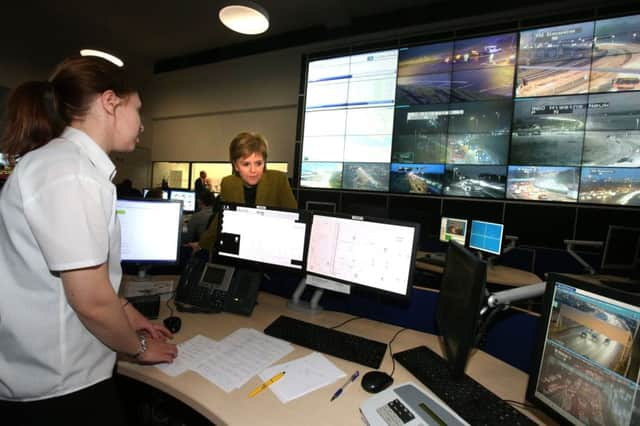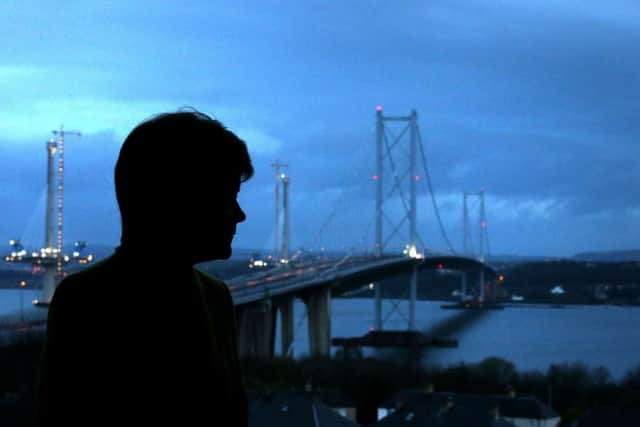Sturgeon thanks engineer who found Forth Road Bridge crack


The First Minister met engineers working to repair the fault and visited the Traffic Scotland control centre in South Queensferry as commuters continue to struggle with congestion on trains and diversion routes.
Ms Sturgeon thanked people for their patience and said ministers would meet with businesses hit by the closure to discuss how the impact can by reduced.
Advertisement
Hide AdAdvertisement
Hide AdIt comes as the Road Haulage Association (RHA) warned the closure of the bridge - due to last until the new year - could cost the industry £315,000 in fuel costs each day.


A two-mile crossing route has turned into a “60-mile round trip” costing an estimated 10,500 drivers that regularly use the bridge an extra £30, the organisation said.
On her visit to the Forth Road Bridge, Ms Sturgeon met Robert McCulloch, the senior engineer who spotted the 20mm crack in a truss under the southbound carriageway last week.
The First Minister told BBC Radio Scotland: “I’ve spoken to the person who spotted the fault last week and all credit to him because although this is inconvenient and disruptive to people, spotting this fault when it was spotted means it is a smaller repair - still substantial - but smaller that can be done in a shorter time scale than otherwise would have been the case.
Advertisement
Hide AdAdvertisement
Hide Ad“Based on what we know right now, this is a repair that can be carried out in that time-scale, weather dependent, of course.”
As commuters continued to face tailbacks on a diversion route over the Kincardine Bridge, Ms Sturgeon encouraged people to car share, use park-and-ride buses and stagger journey times.
She said: “We’re acutely aware of that (the disruption) and that’s why I would always hesitate to say it went really well because no matter how well these contingencies go, there is disruption to people and that’s disruption in terms of time and a financial disruption as well.
“The Deputy First Minister is convening a call this morning with businesses and organisations to look at what we can do to assist in terms of the impact on the economy, but the determination since Thursday night when the decision had to be taken to close this bridge completely, the determination has been to minimise disruption as much as possible and to get the repair done so that the bridge can open again as soon as possible.
Advertisement
Hide AdAdvertisement
Hide Ad“I’ve been briefed a number of times since Thursday night about the nature of the fault and the repair. I’ve had a face-to-face briefing with the model of the bridge by engineers this morning and they remain very optimistic.
“Clearly we’re in the winter period and we’re very vulnerable to the weather disrupting the repair, but they remain optimistic that they can have the bridge open again at the start of the year.”
RHA chief executive Richard Burnett said: “The knock-on effects for hauliers are already beginning to bite. Although we welcome the dedicated HGV route on the A985, the additional cost to hauliers is immense.
“Already we have had reports from members who have had no alternative but to ask their customers for a rate rise. A request that has, unsurprisingly, been met with a great deal of resistance.
Advertisement
Hide AdAdvertisement
Hide Ad“In addition to the increase in operating costs, the overall efficiency of the haulage industry in Scotland is already being greatly reduced as a journey that would take 30 minutes can now take up to three hours if the route is congested.”